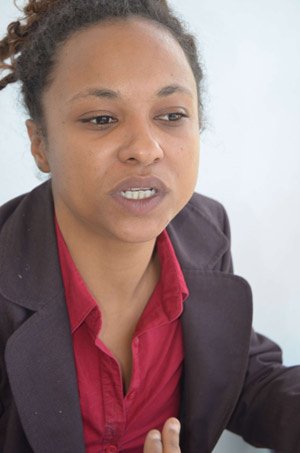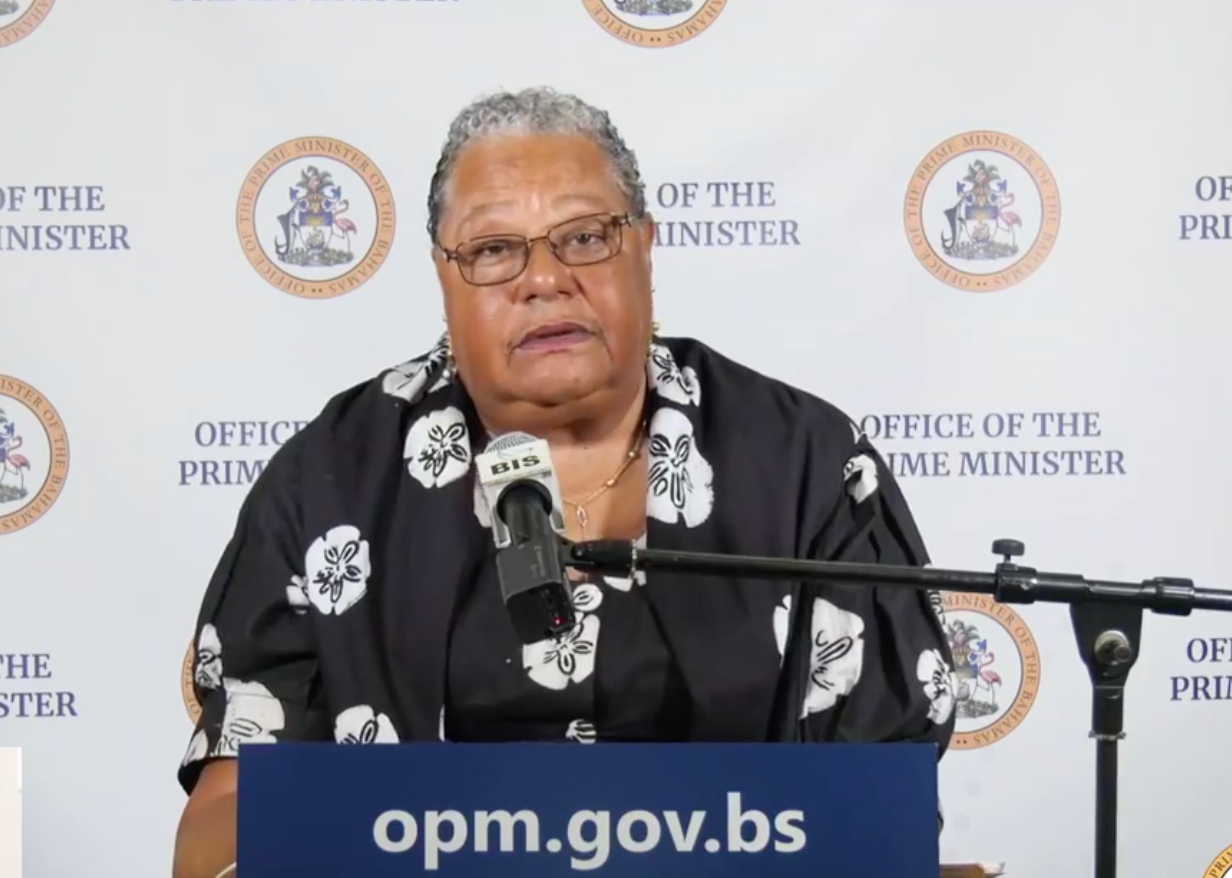NASSAU, BAHAMAS — Health officials indicated yesterday that more contagious variants of the coronavirus likely arrived in The Bahamas since last month and have contributed to some extent to the increase in COVID cases, which has been labelled a “surge” and the “early phases of a third wave”.
“The emergence of variant strains of COVID-19 is of significant concern,” National COVID-19 Vaccine Consultative Committee Chairperson Dr Merceline Dahl-Regis said during a press conference.
“New strains have been identified from the UK, Brazil and South Africa, and more recently, from India. These variants spread more easily and are infecting younger age groups.
“The cases may be more severe and some countries are reporting more deaths.”
Dahl-Regis said genomic testing has been monitored between March 13 and April 17.
The data shows an upward trend in the detection of deletion in samples, meaning there are likely variant strains in The Bahamas.

A breakdown by island shows New Providence, Grand Bahama, Bimini, Long Island, Exuma and Eleuthera could have variant strains present, as well as it could be present within the Royal Bahamas Defence Force (RBDF) organization.
Although Grand Bahama presented with a lot of cases, deletion of the strain on that island was only identified last week.
Bahamas National Reference Lab Director Dr Indira Martin said the data sampling is part of a process to determine the additional strains.
She said a specific mutation will be independently verified, which will determine the specific strains that have arisen in The Bahamas.
She said the final confirmation will come from the return of the 10 samples sent abroad in mid-March, around the time the variants are believed to have come into the country.
Racing against the clock
Daily cases have continued to rise over the last two weeks with the exception of Monday — a grave concern for health officials.
“We must return to heightened surveillance and also contact tracing if we are going to win this race in the shortest period of time,” Dahl-Regis said.

“We must test. We must isolate.
“We must trace. We must treat and we must vaccinate.”
She again underscored the importance of vaccination.
To date, nearly 22,000 people have been vaccinated on four islands.
Of those vaccinated to date, none who contracted COVID have had to be hospitalized or died as a result of the virus, according to Dahl-Regis.
The rise in cases has been attributed to international travel, a subversion of the health protocols and new COVID variants.
Dahl-Regis said contact tracing has been “stepped up” on New Providence and the Family Islands in response, but noted that “vaccinations alone will not get us out of this pandemic”.
Hospitalization continues to increase, though few cases have had to be admitted to the Intensive Care Unit of the hospital.
However, Dahl-Regis also pointed out that the epidemiology profile in The Bahamas has changed, with more young people becoming infected and dying from the virus than those in the elderly categories, in contrast to what was observed during the first and early second wave.
In the older category, those aged 60 to 79 and more men have also died — 49 men compared to 35 women.
A similar trend was observed in those aged 20 through 39, and those 80 years old and over.
There was an even number of COVID deaths among those aged 40 to 59, with 34 in each category.
Dahl-Regis said she could not confirm community spread, as the cases could be clusters associated with cases that traveled, though she expects details on those clusters to be presented during the next Ministry of Health press conference.






